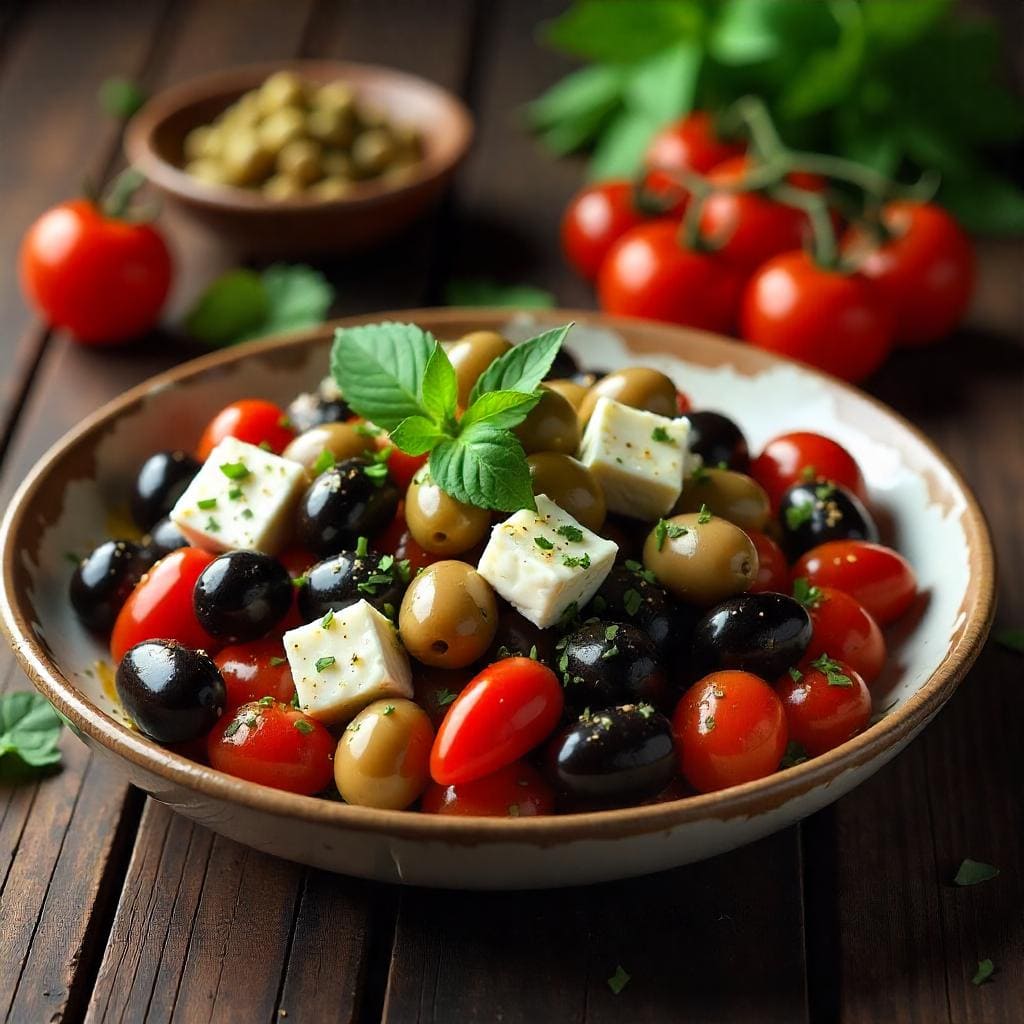Kalamata olives are a staple in Mediterranean diets, celebrated for their rich flavor and health benefits. This article delves into their origin, nutritional profile, and how they can enhance your life.
Table of Contents
City of Kalamata and Its Olives
The city of Kalamata, nestled in southern Greece, is renowned for producing these unique olives. The region’s climate and soil contribute to the olives’ distinct characteristics. Kalamata olives are integral to local culture and economy, often featured in traditional Greek dishes.
The Harvesting Process of Kalamata Olives
Harvesting Kalamata olives is a delicate process. Typically handpicked to prevent damage, the olives undergo curing to remove bitterness. This method not only enhances their flavor but also increases their nutritional value. The curing process can vary, including methods like brining or dry curing, each imparting different flavors and textures.
Health Effects of Kalamata Olives
Kalamata olives offer numerous health benefits. They are rich in healthy monounsaturated fats, which are essential for maintaining cardiovascular health. Additionally, they contain a variety of vitamins and minerals, such as vitamin E and iron, which support overall well-being.
Comparing Kalamata Olives and Black Olives
While often confused, Kalamata and black olives differ significantly. Kalamata olives have a more intense flavor and softer texture. Nutritionally, they tend to have higher levels of beneficial compounds, making them a superior choice for health-conscious consumers.
Incorporating Kalamata Olives into Your Diet

Nutritional Facts of Kalamata Olives
Kalamata olives are a nutritional powerhouse. They contain healthy fats, fiber, and antioxidants, all of which contribute to various health benefits. Consuming these olives can aid in digestion and provide essential nutrients that support bodily functions.
Olives and Greek Olive Oil
Greek olive oil, often made from Kalamata olives, is celebrated for its health benefits. High in antioxidants and healthy fats, it is a staple in Mediterranean cuisine. This oil is known for its ability to improve heart health and reduce inflammation.
Origins and Culinary Uses
Kalamata olives have a rich history, deeply rooted in Mediterranean cuisine. They are incredibly versatile, used in salads, tapenades, and as garnishes. Their robust flavor complements a variety of dishes, from simple appetizers to complex entrees.
Detailed Nutritional Profile
Examining the nutritional profile reveals that Kalamata olives are low in calories yet rich in beneficial fats, proteins, and antioxidants. These nutrients are essential for maintaining a healthy lifestyle, supporting everything from heart health to skin vitality.
Exploring the Potential Benefits
Rich in Antioxidants
Kalamata olives are abundant in antioxidants, which help combat oxidative stress. This can reduce the risk of chronic diseases and promote overall health.
Heart Health Benefits
The monounsaturated fats in Kalamata olives can improve cholesterol levels and support cardiovascular health, reducing the risk of heart disease.
Cancer-Fighting Properties
Research suggests that compounds found in Kalamata olives may help reduce cancer risk due to their anti-inflammatory and antioxidant properties.
Neuroprotective Effects
These olives may protect nerve cells from damage, potentially lowering the risk of neurodegenerative diseases such as Alzheimer’s.
Additional Health Benefits
Kalamata olives also improve digestion, support weight management, and enhance skin health due to their rich nutrient content.
Safety Considerations and Precautions
While Kalamata olives are generally safe, they should be consumed in moderation due to their sodium content. People with sodium sensitivities or hypertension should be particularly cautious.
Tips for Adding Them to Your Diet
Incorporate Kalamata olives into your diet by adding them to salads, pizzas, or pasta dishes. They can also be enjoyed as a standalone snack or blended into a tapenade for a flavorful spread. Their versatility makes them an easy addition to various meals, enhancing both flavor and nutritional value.
FAQ
Are Kalamata olives good for weight loss?
Yes, they are low in calories and high in healthy fats, which can aid in weight management by promoting satiety.
How should Kalamata olives be stored?
Store them in a cool, dry place, preferably in a sealed container with brine to maintain freshness and flavor.
Can Kalamata olives be eaten raw?
They are usually cured before consumption to reduce bitterness, making them more palatable and enjoyable.
What makes Kalamata olives different from other olives?
Their unique curing process and distinct, robust flavor set them apart from other olive varieties.
Do Kalamata olives contain any allergens?
Generally, they are allergen-free, but it is advisable to check labels for any added ingredients that may cause allergies.
Incorporating Kalamata olives into your diet can enrich both your culinary experiences and health. Their unique taste and myriad benefits make them a valuable addition to any meal plan.
